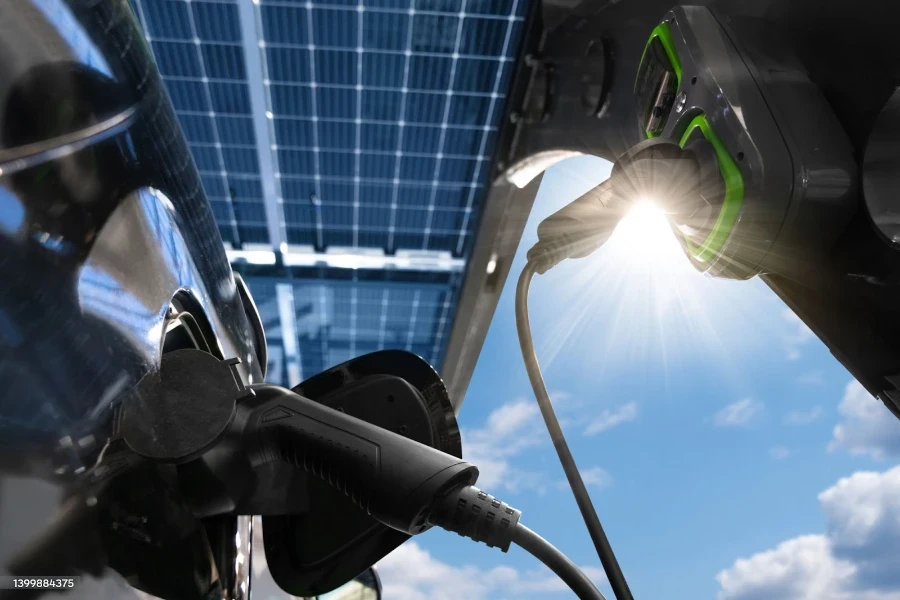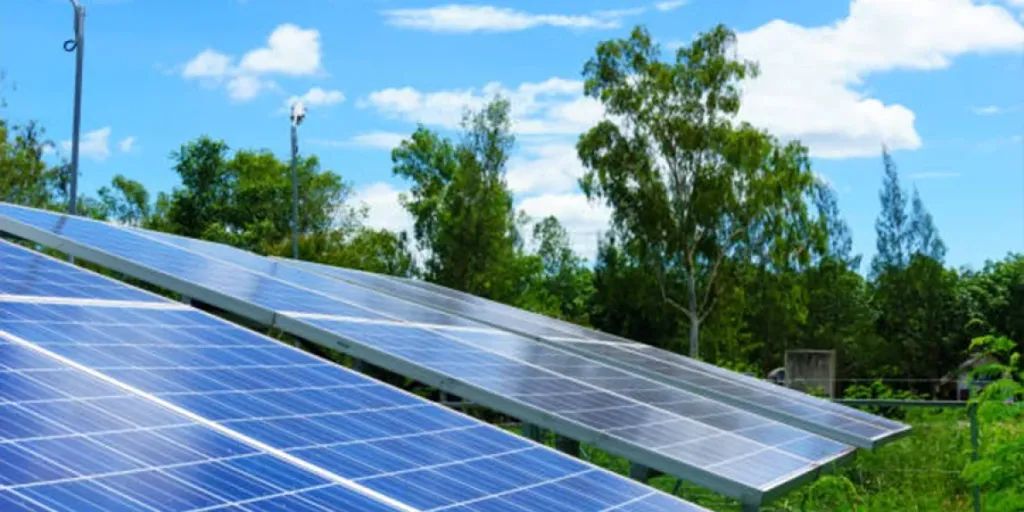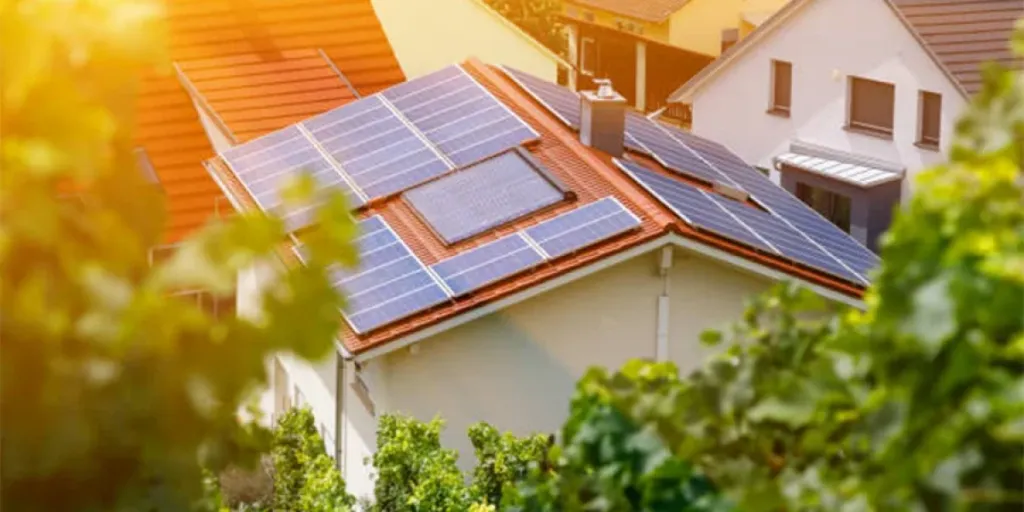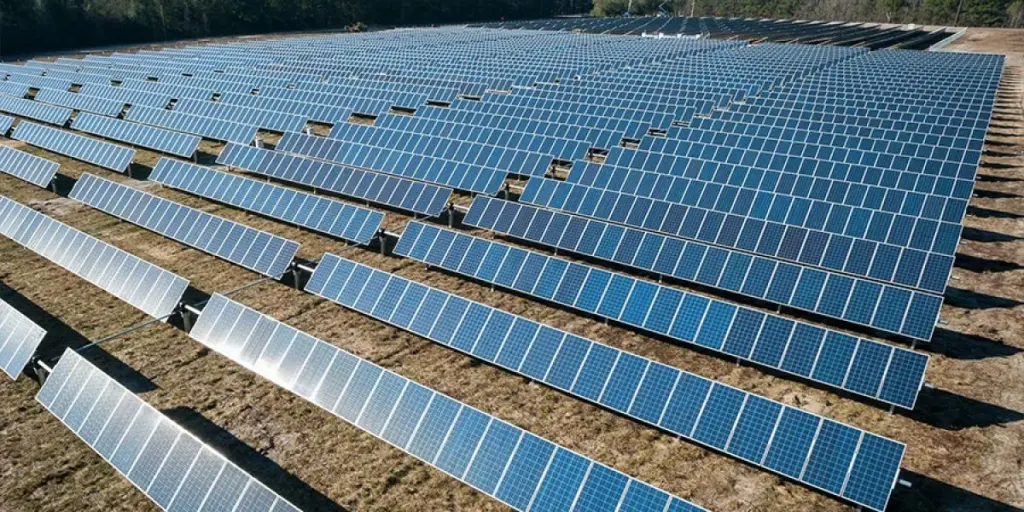Just imagine your car parked under an awning that not only protects it from the wind and rain, but also reduces your electric bill. Sounds like something out of a sci-fi movie, right? Well, that’s the reality of solar carports!
You may have seen these carports with solar panels on top in the parking lot of a shopping center or even in your neighbor’s driveway. These seemingly ordinary structures are actually small power stations that not only shade your car, but also utilize the sunlight and convert it into electricity. Every day when you park your car at home, your carport is actively saving you money on charging costs.
In this article, we’ll dive into how to choose a solar carport that suits a range of buyer’s needs. Whether looking to cut down on energy costs or to contribute to environmental conservation, there’s an option catered to every interest.
So read on for a guide to sourcing the best solar carports in 2024!
Table of Contents
What is solar carport?
Solar carport vs. conventional solar installation
Costs and benefits of solar carports
Final words
What is solar carport?
A solar carport is an innovative structure that combines the functionality of a traditional carport with solar power generation technology. The core idea of this design is to utilize the space that would otherwise be used only for parking vehicles to collect solar energy and thus generate electricity.
Compared to a traditional carport, a solar carport not only provides the basic functions of shade and rain protection, but also achieves energy self-sufficiency by capturing sunlight through top-mounted solar panels, which are converted into electricity.
Components

Solar panel: This is the most crucial part of the solar carport, used to capture sunlight and convert it into electricity.
Support structure: This is used to support the solar panels. This structure must be able to withstand all weather conditions while maximizing the reception of sunlight as much as possible.
Electrical components: This includes the inverter (which converts the solar energy from DC to AC), wiring, and sometimes the batteries used to store the energy.
Grid connection: Many solar carports are connected to the grid, allowing excess energy to be channeled back into the grid.
Principle: Solar carports work based on the photovoltaic effect. When sunlight hits a solar panel, it excites the electrons in the semiconductor material, creating an electric current. This current is then used as electricity or stored for later use.
Classification
Residential solar carports: smaller in size and designed for use on individual homes. Usually fitted with fewer solar panels.
Commercial solar carports: larger structures, usually located in business parks, shopping centers or public parking lots.
Solar carport vs. conventional solar installation


Conventional solar installations utilize the existing roof area with a racking system that is fixed directly to the roof structure. Whereas a solar carport is a free-standing structure that is fixed directly to the ground, each system has its own advantages.
Advantages of solar carports
Dual-function space utilization: Solar carports transform parking spaces into energy-generating areas, effectively turning a single-purpose space into a multifunctional one, optimizing both space and energy use.
Vehicle protection: Beyond generating electricity, solar carports also protect vehicles from harsh weather conditions like rain, snow, and intense UV rays.
Ease of maintenance: The lower placement of solar panels in carports makes cleaning and maintenance tasks more convenient, helping maintain system efficiency.
Design flexibility: Solar carports can be customized to specific environments, such as adjusting orientation to maximize solar exposure, thereby improving energy efficiency.
Advantages of traditional rooftop solar panels
Experienced installation: The popularity of rooftop solar panels has led to a market with many experienced installation service providers, ensuring professionalism and reliability in installations.
Space-saving: Rooftop solar panels do not take up ground space, making them an ideal choice for compact or restricted areas, especially where land use is limited.
In summary, both solar carports and traditional rooftop solar panels have their unique advantages. When choosing the right solar solution, one should consider personal or organizational needs, space conditions, and budget constraints.
Costs and benefits of solar carports
Costs of solar carports
Initial investment cost: For instance, according to EnergySage, the average cost for installing a 6-kW solar carport is around US$ 6700, whereas a rooftop solar system of the same capacity costs about US$ 6200. This higher cost for carports is primarily due to the need for additional structural support and installation labor.
Impact of system size on cost: The cost of solar carports increases with the size of the system. For example, a 5-kW system may require an investment of approximately US$ 5900, while a 10 kW system could exceed US$ 11800.
Additional cost factors: The overall cost can vary based on choices like solar panel brands, types of inverters, or the addition of energy storage batteries. Furthermore, regional differences, such as labor costs and local regulations, also influence the total cost.
Benefits of solar carports
Tax credits and incentives: In the U.S solar carports are eligible for a 26% federal solar tax credit. Taking a 6-kW system as an example, the original cost of US$ 6700 can be reduced to a net cost of about US$ 5000 after tax credits. Additional incentives might include state government or utility company incentives like sales tax exemptions and property tax exemptions.
Energy savings return: In the long term, solar carports can significantly reduce electricity expenses. For example, if a solar carport system generates enough electricity annually to offset US$ 1,000 in electricity bills, it could save up to US$ 20,000 over a 20-year lifespan.
Vehicle protection and property value enhancement: The shelter provided by solar carports can reduce weather-related wear and tear on vehicles, lowering long-term maintenance costs. Additionally, as a renewable energy feature, a solar carport can potentially increase the overall property value.
Environmental benefits: Utilizing solar carports helps decrease reliance on fossil fuels and reduce carbon emissions, offering significant environmental and societal benefits.
In summary, although the initial cost of solar carports is relatively high, their long-term total benefits, including tax incentives, energy savings, and other incentives, can outweigh the initial investment. Opting for a solar carport is an ideal decision that considers both economic and environmental factors.
Final words

Solar carports are a convenient device that can efficiently provide additional energy. When selecting a solar carport, you should consider the following key factors, with specific examples to illustrate how these factors can influence your decision:
Space and location: In an urban area, a typical parking space size is around 180 to 200 square feet. A solar carport covering 10 parking spaces could therefore occupy approximately 1,800 to 2,000 square feet. The solar panels on this carport, depending on their efficiency and the local climate, could generate approximately 20 kWh to 30 kWh per day.
Electricity demand: The average American household consumes about 877 kWh per month, according to the U.S. Energy Information Administration. A 6-kW solar carport, in a region with average sunlight, can produce around 720 kWh per month, covering a significant portion of this demand.
Budget constraints: A standard 6 kW solar carport might cost around US$ 6700, while a 6-kW rooftop solar system might cost about US$ 6200. With the federal solar tax credit (26% in 2021), the net cost for the solar carport could be reduced to around US$ 5000.
Policies and incentives: Some states may offer additional incentives. For instance, California’s Self-Generation Incentive Program (SGIP) can provide rebates for solar systems with storage, potentially reducing the cost further.
If you are interested in exploring a range of solar carports and other trending EV technologies, head to Alibaba.com for a range of quality product listings.




